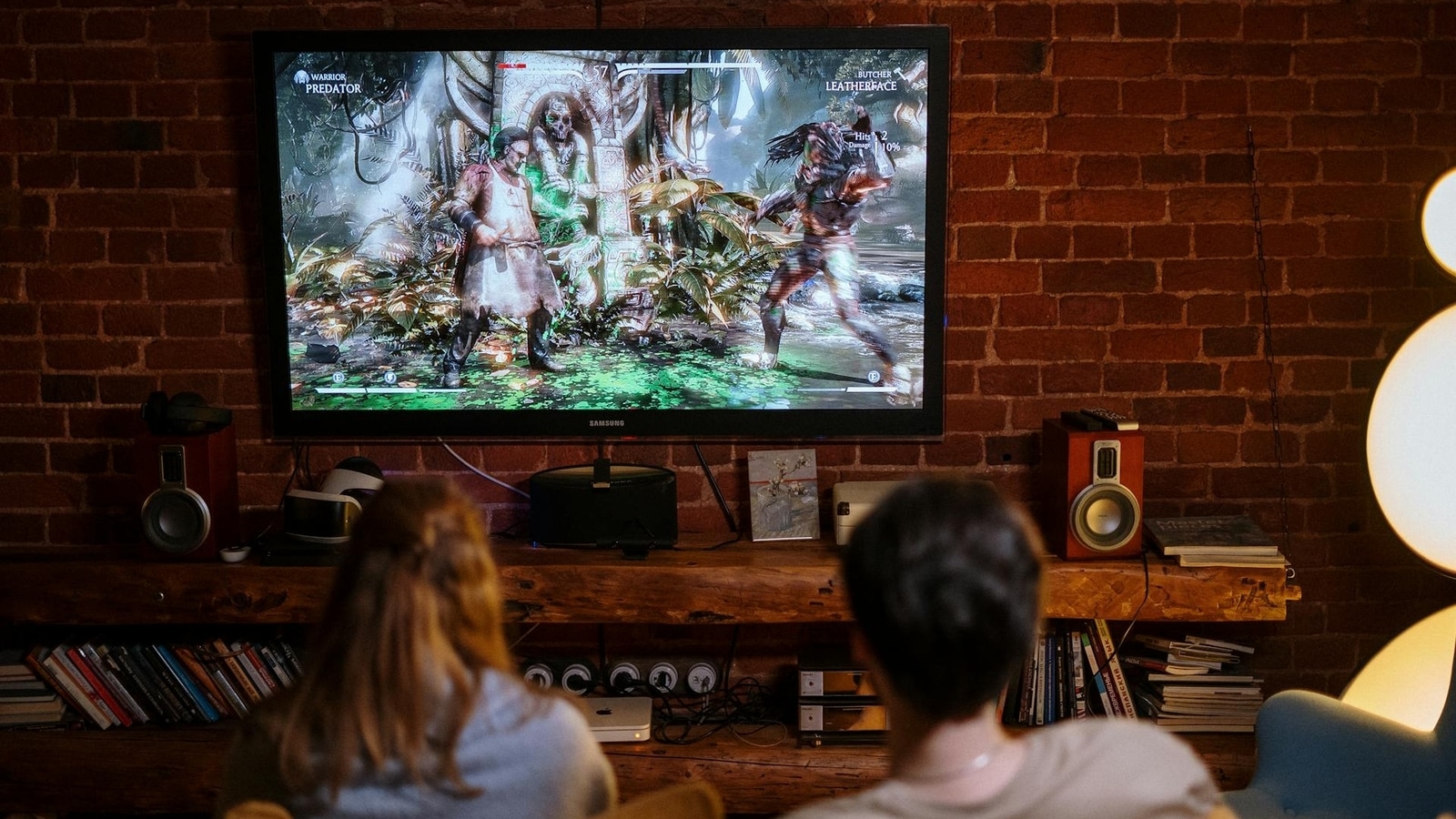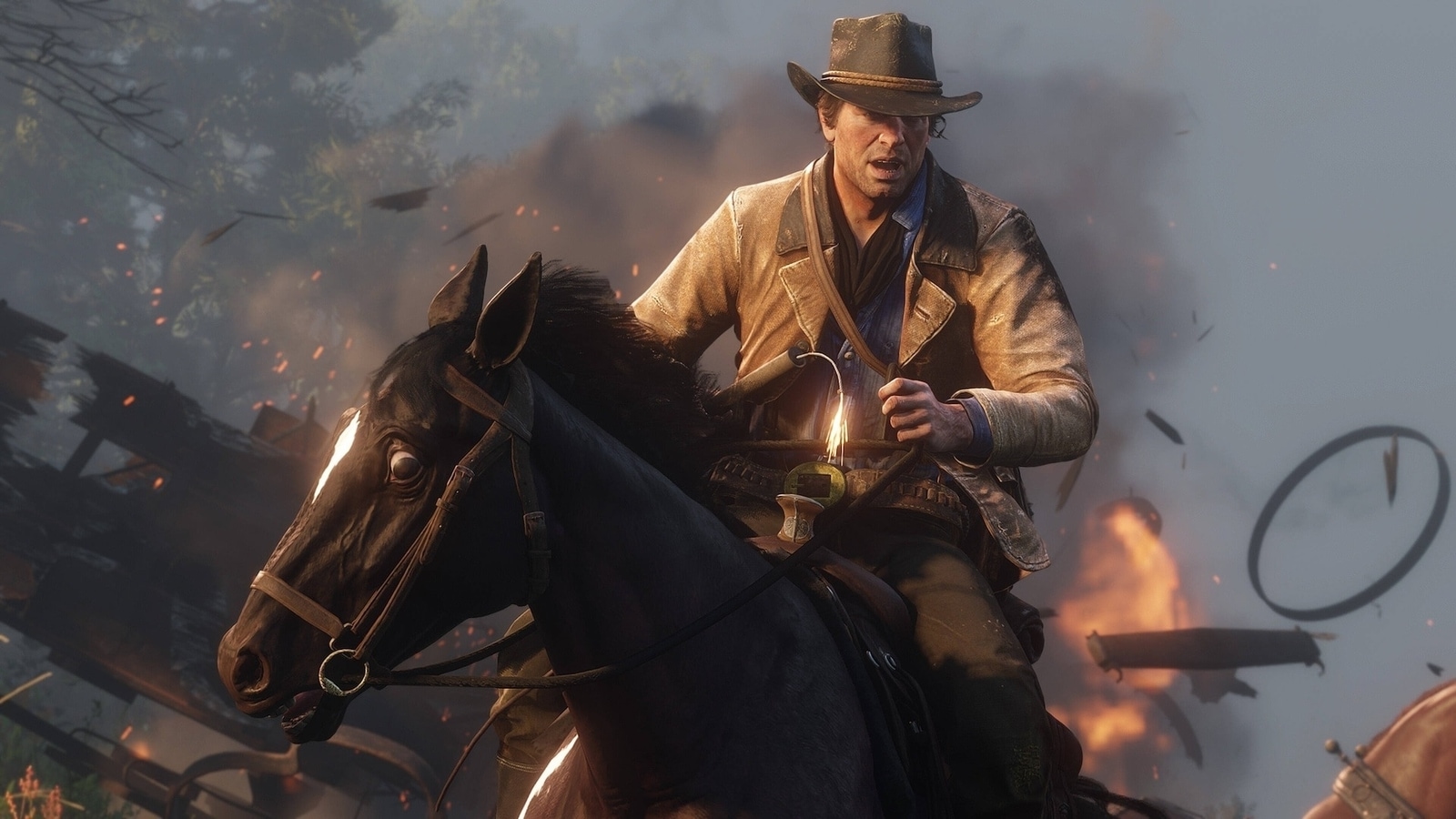ILULISSAT, Greenland — From the top floor of a hotel here the view of Disko Bay, a vast inlet in western Greenland dotted with icebergs, was captivating.
But as the Danish actor Sidse Babett Knudsen stared out the window at what appeared to be a frozen ghost city glinting in the early September sun, she looked more pained than enthralled. Knudsen was in Greenland to shoot scenes for a new season of “Borgen,” the acclaimed series that seemingly came to an end nearly a decade ago.
In the intervening years, her character Birgitte Nyborg, Denmark’s first female prime minister, has undergone some changes that were making Knudsen uneasy. “She goes bad places,” the actor said of the revived Birgitte. “Which intellectually is interesting, but is actually a bit hard to do because I feel this incredible responsibility to take care of her.”
That dilemma of beloved characters going bad places is at the heart of the fourth season of “Borgen,” which, after a long hiatus and a February debut on Danish public television, begins streaming on Netflix on June 2. In its fundamentals, the show is unchanged: It still navigates a surprisingly engaging path through politics’ thicket, and it still focuses on the double bind that women in positions of power face in their public and private lives.
But now the stakes are higher: instead of episodic stories of interparty sparring, this “Borgen” follows a single plotline across the entire season: Large reserves of oil are discovered in Greenland, and geopolitical tensions erupt around issues of sovereignty, climate change and decolonization. And all this among characters who themselves have grown not merely older, but darker: less “West Wing,” more “House of Cards.”
When “Borgen” aired what seemed like its final episode on Danish television in 2013, the show was already on its way to becoming an international hit; eventually syndicated in 70 countries, it would launch Hollywood careers for several of its stars, including Knudsen, Birgitte Hjort Sorensen and Pilou Asbaek.
Knudsen’s immensely likable portrayal of a political idealist who was both a determined leader and a vulnerable woman (the first episode famously had her struggling to fit into the suit she planned to wear to an important debate) may even have helped audiences accept the idea of a female prime minister; Denmark elected its first, Helle Thorning-Schmidt, a year after “Borgen” debuted in 2010. But it also turned Birgitte into a feminist icon globally. “I was in London once,” Knudsen said. “And a woman came up to me and told me that she had something on her refrigerator that said, ‘What would Birgitte Nyborg do?’”
For all its popularity, the show was never intended to last more than its original three seasons, and Knudsen was initially reluctant, she said, to do a fourth, believing fans would inevitably be disappointed. She was won over by the trajectory for the new season presented by the show’s creator and screenwriter, Adam Price, and her affection for her character.
Several other key actors, including Hjort Sorensen, who plays the journalist Katrine Fonsmark, also came back. “What’s brilliant,” Hjort Sorensen said, “is that 10 years have passed, both in real time and for the characters. So when I read the first script, it felt like finding old friends on Facebook: Oh, this is what you’ve been doing!” In the new season, Katrine returns to journalism and becomes head of a newsroom, only to discover that the traits that served her well earlier in her career — her relentlessness and uncompromising nature — make her an unsympathetic boss. “I definitely struggled with my vanity on her behalf,” Hjort Sorensen said. But she also welcomed the chance to explore a character who’s come to understand with age “that the world is less black and white.”
Birgitte, now the foreign minister, also compromises on her ideals. “She’s faced with a choice: Are you going to leave the scene gracefully, or are you going to remain in the game?” Price said. “Knowing that remaining in the game means that your hands will be very dirty.” The real action of this “Borgen” happens on the massive, ice-covered island of Greenland, 2,000 miles from Copenhagen. When oil is discovered there, it falls to Birgitte to not only navigate the competing interests of the United States, China and Russia but, even more trickily, to negotiate with the Greenlandic government over its extraction.
“Borgen” has always winked at real-life political events, and here, too, the corollaries resonate. An autonomous region of the kingdom of Denmark, Greenland has power over several policy areas, but still depends heavily on the Danish government for its operating expenses; an annual grant of more than $600 million comprises about 20 percent of Greenlandic gross domestic product. On the show and in real life, the discovery of valuable natural resources in Greenland could offer a path for ending the country’s dependence on Denmark.
Focusing the new season on that arc brought immense challenges. The logistics were daunting: Filming took place in August and September 2021, when Greenland’s strict coronavirus policies had reduced the already sparse number of international flights. Greenland has no roads to connect its settlements, and everything needed for the several weeks of shooting in Ilulissat, Greenland’s third largest city, and Nuuk, the capital, had to be shipped from Copenhagen by boat. This included a full-sized prop submarine and the crates of chemical hand warmers that would keep the team from freezing on set.
Even more delicate was the task of representing a country and a people still very much in the process of decolonization. “We have this huge history together,” Price said of the tensions that drew him to the season’s story line. “There’s so much guilt, and there’s so much an undercurrent of anger.”
But as a Danish production making a story about Greenlanders, “Borgen” ran the risk of replicating historical patterns. “We are so used to being represented by others,” Nivi Pedersen, an actor who plays the Greenlandic premier’s attaché in the series and is also a documentary filmmaker, said. “And we are only just now starting to tell our own stories, both inward to ourselves and out to the rest of the world.”
Price admits that in early drafts, “some of the Greenlandic characters bordered on cliché, because I didn’t know better.” He tried to counteract that with deep research and by giving Greenland “as many voices as possible in the show,” he said. In addition to hiring the novelist Niviaq Korneliussen to handle the translation of the Greenlandic dialogue, the directorial team was influenced by a research trip organized by the prominent local businessman Svend Hardenberg, who said he tried to introduce the team to the real Greenland.
While production was underway, the show’s Greenlandic actors expressed concern in interviews that certain cultural elements they considered important for authenticity — the local accents that would make a character’s origins immediately obvious to other Greenlanders; the deeply-ingrained codes that would keep another from making a public outburst — were not being accurately represented. And since the show premiered, reviews in the Greenlandic press have been mixed. “It quickly becomes a caricatured depiction of a beautiful land with noble people who are submissive,” wrote the newspaper Sermitsiaq.
But both Danes and Greenlanders involved in the production expect the season to open their audience’s eyes in important ways. “I think it will have an impact on how others see the relationship between Danes and Greenlanders, and maybe on how the Danes perceive themselves,” Hardenberg said. “That’s the wonderful thing about a vehicle like ‘Borgen,’” Price agreed. “We can actually inform and entertain at the same time.”
That the new season does so in tones darker than previous ones feels like an honest reflection of the last decade. Months after her time in Ilulissat, Knudsen was no longer wondering if she had made the right decision in returning to “Borgen.” Like the others, she felt hopeful that the show would help raise awareness about Denmark’s relationship with Greenland, and she said she felt permanently altered by her encounters with those spectacular icebergs in Disko Bay.
Asked what she thought that woman in London would feel about Birgitte now, who the actor portrays again with skillful nuance, Knudsen smiled with the adorable wrinkling of her nose for which her character is known.
“There might not be so much advice on her refrigerator from Birgitte Nyborg,” she said. “But I hope she finds the journey interesting.”






















